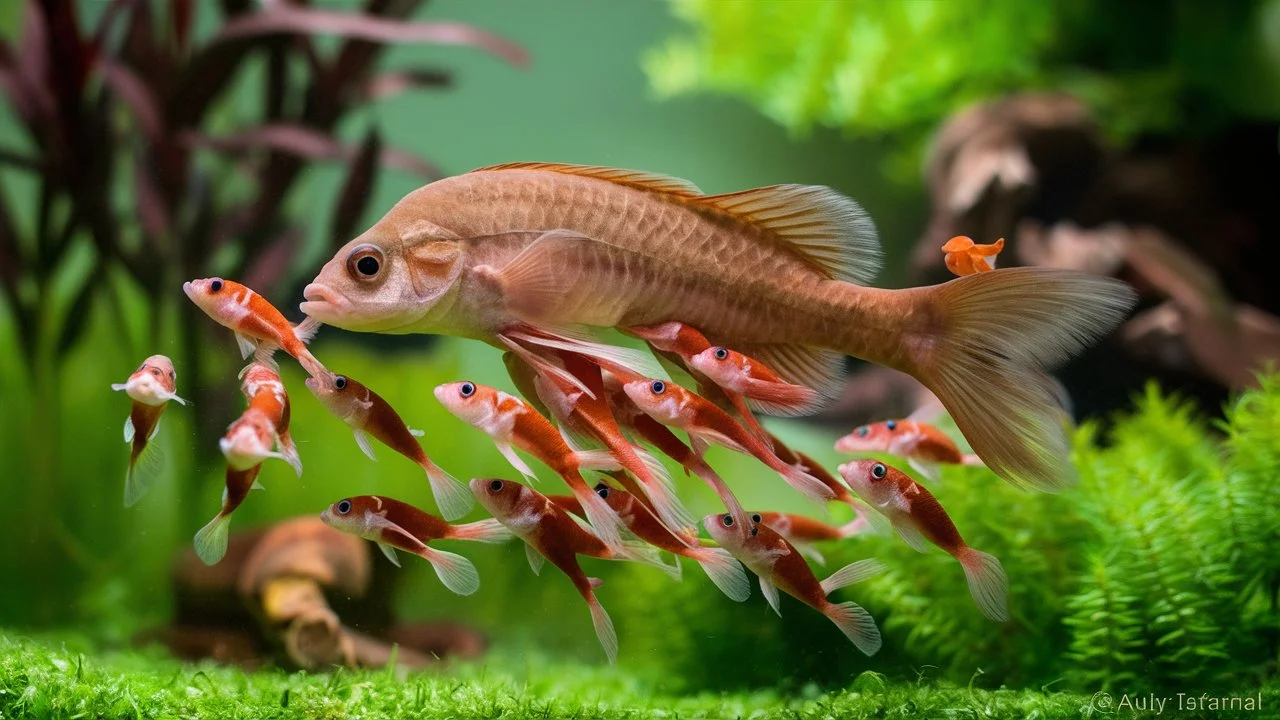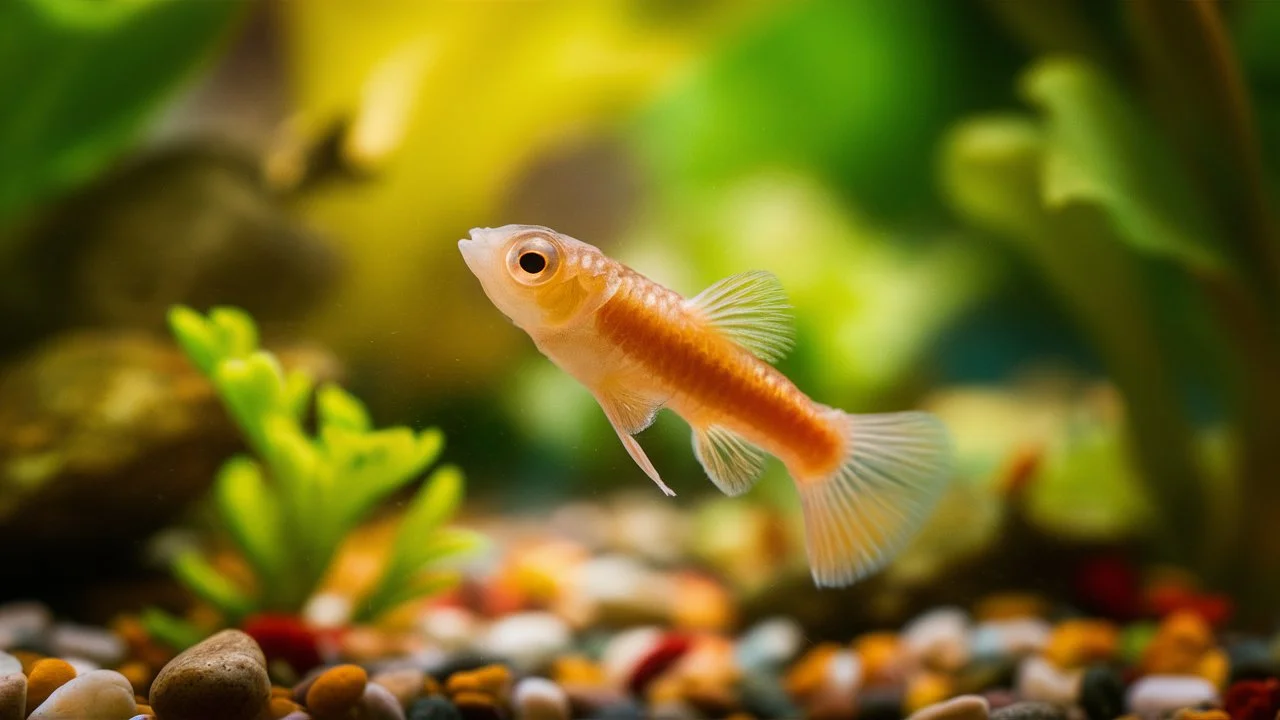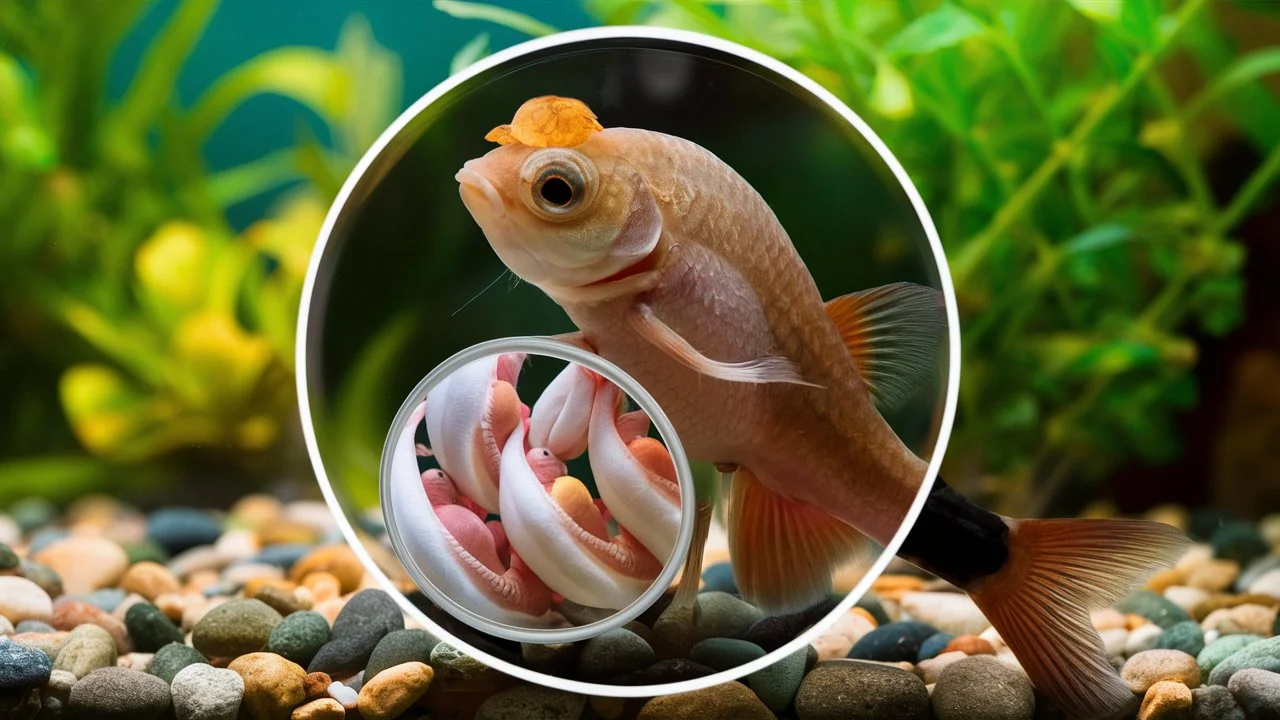Guppies are small, colorful fish that many people love to keep as pets. They are easy to take care of and can bring a lot of joy to an aquarium. But, did you know that guppies might eat their own babies? This may sound strange but it happens often in the world of guppies.
In this article, we will learn why guppies eat their babies, how you can stop this from happening and how to take care of baby guppies so they grow up healthy and strong.
Yes, guppies do eat their babies. This is common behavior for guppies. They do this because they don’t recognize their babies as their own and see them as food. To stop this, you can put the baby guppies in a separate tank or use a breeding box in the main tank. This keeps them safe and helps them grow.
Why Do Guppies Eat Their Babies?
Guppies eat their babies because they do not have strong parental instincts and don’t recognize their offspring. They may see the babies as food, especially if they are hungry. Stress from overcrowding in the tank can also lead to this behavior. In the wild, guppies eat small creatures, so their natural hunting instincts can make them eat their babies.

Guppies eat their babies for several detailed reasons:
Lack of Parental Instincts
Guppies do not have strong parental instincts. Unlike some animals that care for their young, guppies do not recognize their babies as their own. Instead, they see them as small, moving objects, which they often mistake for food.
Hunger
If guppies are not fed enough, they might turn to their babies for food. Baby guppies are small and easy to catch, making them a convenient meal for hungry adult guppies. Ensuring that adult guppies are well-fed can help reduce this behavior.
Stress and Overcrowding
An overcrowded tank can cause stress for guppies. When guppies feel stressed, they might exhibit unusual behaviors, including eating their babies. Providing enough space and maintaining a calm environment in the tank can help prevent this issue.
Natural Hunting Instincts
In the wild, guppies feed on small insects and other tiny creatures. Baby guppies are small and move quickly, which can trigger the adult guppies’ natural hunting instincts. This instinctual behavior can lead to them eating their own offspring.
By understanding these reasons in detail, you can take steps to protect baby guppies. This includes keeping the adult guppies well-fed, providing ample space in the tank, and creating a safe environment for the baby guppies to grow.
Related reading:The Easiest And Simple Way to Breed Guppies
How Can We Stop Guppies from Eating Their Babies?
Preventing guppies from eating their babies requires a few specific actions to create a safe environment for the young fish. Here are some effective methods:
Use a Breeding Box
- Place a breeding box in the main tank.
- Put the pregnant guppy in the breeding box before she gives birth.
- Once the babies are born, they will be separated from the mother.
Separate Tank for Babies
- Move the baby guppies to a separate tank after birth.
- Use a net to gently transfer the babies to avoid stress.
Provide Hiding Spots
- Add plenty of plants and decorations in the tank.
- Use items like rocks, caves, and artificial plants for the babies to hide.
Keep Adult Guppies Well-Fed
- Feed adult guppies regularly to reduce their hunger.
- Provide a varied diet including flakes, pellets, and live or frozen foods.
Maintain a Spacious Tank
- Ensure the tank is large enough to avoid overcrowding.
- Follow the general rule of one gallon of water per inch of fish.
Reduce Stress
- Keep the tank clean and well-maintained.
- Monitor water temperature, pH levels, and other water parameters.
By following these steps, you can create a safer environment for baby guppies and reduce the chances of them being eaten by adult guppies.
How to Take Care of Baby Guppies?
Taking care of baby guppies requires special attention to their environment, diet and overall well-being.
Here are some essential steps to ensure your baby guppies grow up healthy and strong:

Set Up a Safe Environment
- Separate Tank: Move baby guppies to a separate tank to protect them from adult fish.
- Filtration: Use a gentle filter to keep the water clean without creating strong currents that can harm the babies.
- Heater: Maintain a stable water temperature around 78-80°F (25-27°C) using an aquarium heater.
Provide Proper Nutrition
- Frequent Feeding: Feed baby guppies 3-4 times a day with small amounts of food.
- Specialized Food: Use finely crushed flakes, baby brine shrimp, or specially formulated fry food to meet their nutritional needs.
- Varied Diet: Include a variety of foods to ensure they get all the necessary nutrients.
Ensure Clean Water
- Regular Water Changes: Perform partial water changes (about 25%) every few days to keep the water clean.
- Avoid Overfeeding: Remove any uneaten food to prevent water contamination.
Create Hiding Spots
- Plants and Decorations: Add live or artificial plants and other decorations to provide hiding spots and make the babies feel secure.
Monitor Their Growth
- Watch for Illness: Keep an eye on the babies for any signs of illness, such as clamped fins or unusual swimming behavior.
- Growth Rate: Ensure they are growing at a healthy rate and adjust their care as needed.
Socialization
- Gradual Introduction: When the babies are large enough, gradually introduce them back to the main tank to help them adapt to living with adult guppies.
By following these steps, you can provide a nurturing environment for your baby guppies, helping them to grow into healthy and vibrant adult fish.
Conclusion
Yes, guppies do eat their babies, and understanding why this happens is crucial for anyone who keeps these beautiful fish as pets. The lack of parental instincts, hunger, stress from overcrowding, and natural hunting instincts are the primary reasons behind this behavior. However, with the right measures, such as using a breeding box, providing hiding spots, keeping the adults well-fed, and maintaining a spacious and stress-free environment, you can protect the baby guppies and ensure they grow up healthy and strong. By taking these steps, you can enjoy watching your guppy family thrive in a safe and nurturing aquarium.

